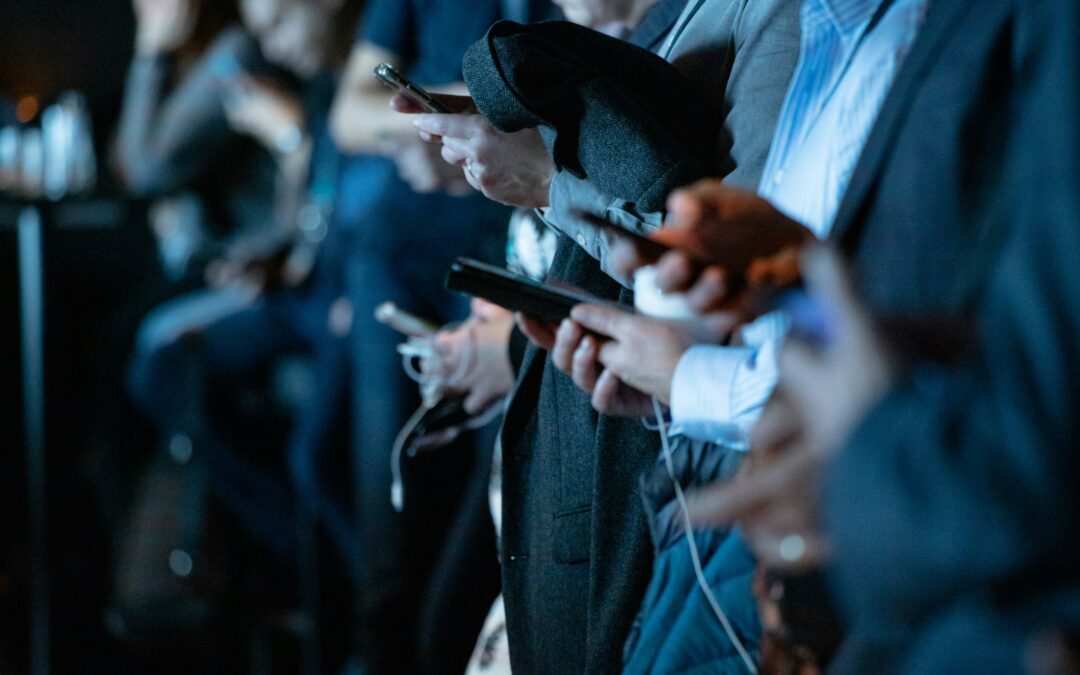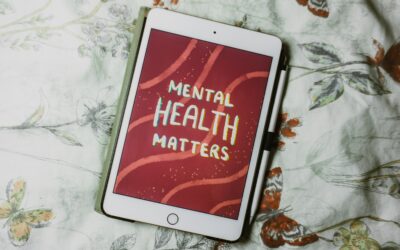In today’s digital age, social media and young people are intrinsically intertwined. In fact for young people, social media has become as natural as eating and drinking! Platforms like Instagram, TikTok, and Snapchat are deeply ingrained in the social fabric of youth culture. They provide instant communication, entertainment, and a sense of community. While there are undeniable benefits to social media and young people — such as staying connected with friends, sharing creativity, and accessing global information—it also poses significant dangers, particularly for young minds still developing their sense of self and their place in the world. The negative impact of social media and young people is far-reaching and has implications for mental health, self-esteem, behaviour, and societal expectations.
1. Impact on Mental Health
One of the most concerning effects of social media and young people is its impact on mental health. There are many studies that have linked heavy social media use to anxiety, depression, and loneliness. The constant exposure to specially crafted images of seemingly perfect lives can lead to feelings of inadequacy and self-doubt, especially among teenagers who are in a vulnerable phase of their identity formation.
The pressure to present a perfect appearance and lifestyle often causes users to compare their real lives to the idealised and filtered versions they see on social platforms. This comparison culture can result in an overwhelming sense of inferiority, as young people measure their own lives against unattainable standards. In extreme cases, this can create feelings of anxiety and depression, as users may feel they are falling short in aspects of appearance, social status or success.
Moreover, social media can often expose young people to cyberbullying and harassment. Hidden behind screens, these ‘keyboard warriors’ can engage in harmful behaviours with little accountability. Victims of online harassment frequently experience intense emotional distress, leading to long-term psychological issues. Studies suggest that cyberbullying may have more severe emotional effects than in-person bullying, as it can follow victims into their private spaces and be relentless.
2. Self-Esteem and Body Image Issues
Social media fosters a culture of comparison and validation through likes, comments, and followers. For many young people, their self-worth becomes entangled with how they are perceived online. Platforms like Instagram and TikTok are heavily visual and the emphasis on appearance can distort perceptions of self-worth.
Young people, particularly teenagers, are susceptible to body image issues due to the unrealistic beauty standards perpetuated on these platforms. Filters, editing apps, and influencers with surgically enhanced bodies create a distorted reality where only one type of beauty is celebrated. As a result, many teens feel pressure to conform to these unrealistic standards, leading to issues such as low self-esteem, eating disorders and body dysmorphia.
For girls in particular, social media can be a breeding ground for unhealthy body comparisons. A survey by the Royal Society for Public Health found that Instagram was the social media platform most likely to negatively affect body image. Constant exposure to digitally enhanced images can create a relentless drive for physical perfection, making young people overly concerned with their appearance.
3. Sleep Disruption and Addiction
Social media usage, especially late at night, can significantly disrupt sleep patterns. Many young people scroll through their feeds in bed, which not only reduces the amount of sleep they get but also impacts the quality of rest. The blue light emitted by smartphones and the constant barrage of notifications overstimulates the brain, making it difficult to unwind and fall asleep.
Furthermore, social media is designed to be addictive. Platforms use algorithms to keep users engaged for as long as possible, leading to excessive screen time. The need to stay updated with every new post, message, or trend creates a compulsive cycle of checking apps. This behaviour can detract from important activities like studying, engaging in hobbies, and building in-person relationships. Over time, this can contribute to a sense of isolation and reduce a young person’s ability to focus on real-life priorities.
4. Unrealistic Expectations and FOMO
Social media platforms present a highlight reel of other people’s lives, which can create unrealistic expectations for success and happiness. For young users, it can be difficult to differentiate between reality and the carefully curated content they see online. The constant exposure to others’ achievements, travel experiences, and personal milestones can fuel feelings of missing out (often referred to as FOMO—fear of missing out).
This feeling of being left behind can cause anxiety, as young people may believe they are not living up to the societal standards set by influencers and peers. FOMO can lead to impulsive behaviours such as overspending, prioritising social status over genuine interests or engaging in risky activities just to have something “share-worthy” for social media.
5. The Erosion of Social Skills
Ironically, social media can hinder the development of social skills in young people. While it facilitates online communication, it does not provide the same level of interaction as face-to-face communication. Over-reliance on digital interactions may result in difficulties forming deep, meaningful relationships in real life.
Young people and social media is a complicated relationship where they are spending more time interacting through screens. This can diminish their ability to read body language, engage in meaningful conversations, or express emotions in real-time. This erosion of social skills can contribute to feelings of loneliness, as digital interactions lack the depth and authenticity of real-world connections.
Overall, social media has undeniably transformed the way young people communicate and engage with the world. However, its negative impact cannot be ignored. The toll it takes on mental health, self-esteem, and social skills is significant, particularly in the formative years of adolescence. As young people continue to immerse themselves in these platforms, it is crucial for parents, educators, and society as a whole to guide them towards healthier, more balanced usage. Encouraging digital literacy, promoting self-worth beyond social validation, and fostering real-life connections are essential in mitigating the harmful effects of social media on young minds.
The notion of young people and social media can bring up many issues that can be addressed through therapy. I offer a free 15 minute consultation if you find yourself in a situation where you’re concerned about a young person in your life. If you would like to get in touch and find out more about my services, you can talk to me for details.
About The Author
An experienced therapist, Jille Tringham is the owner of Meditate Place and has years of personal and industry expertise. Her unique therapeutic approach can offer long term release and the ability to cope with emotional issues that cause daily setbacks and uncertainty in your life. Jille Tringham has a number of years experience in human behaviour both in a commercial setting and as a therapist. She provides therapies from her Birmingham base to release you from your day to day challenges, as well as Life Coaching and Career Mentoring because she understands the physical and emotional strains that spill into all areas of life.




